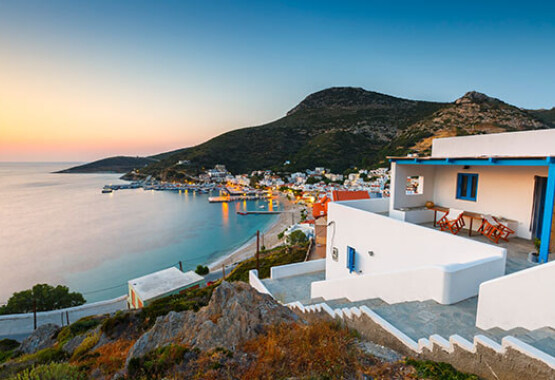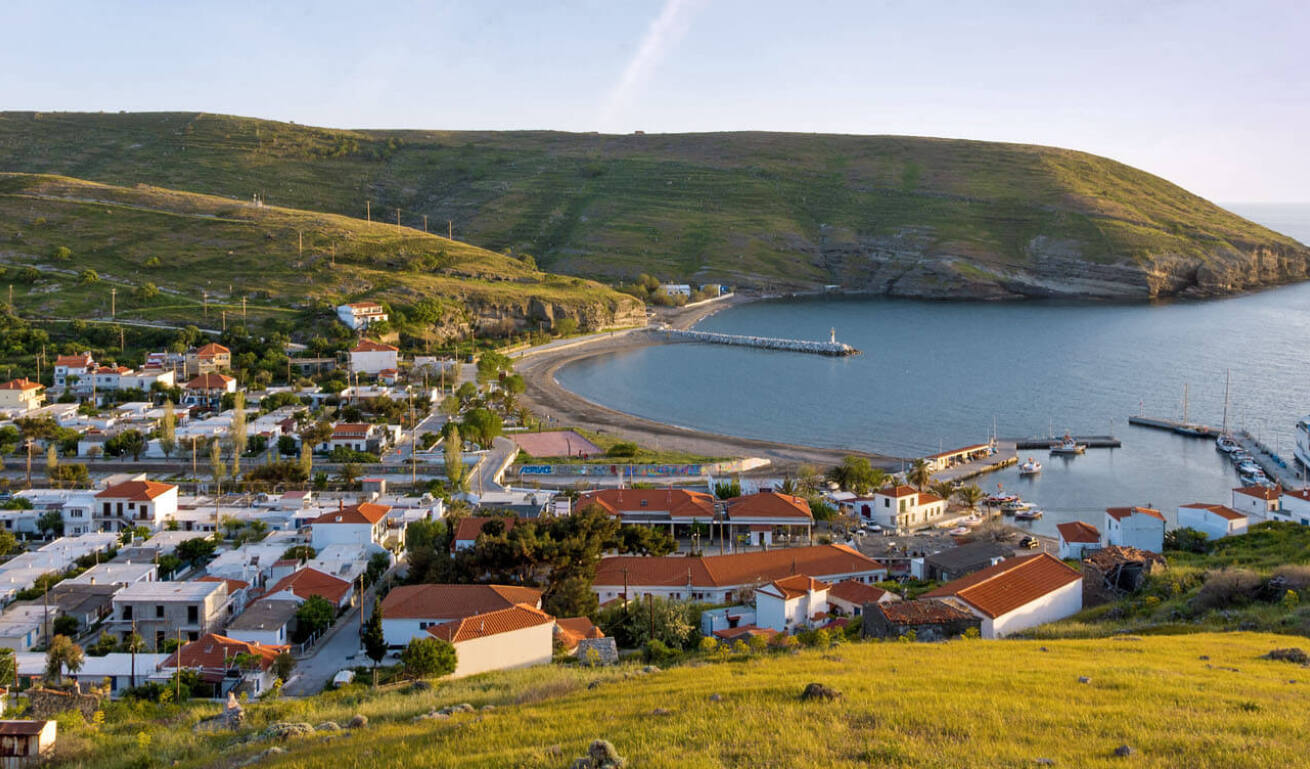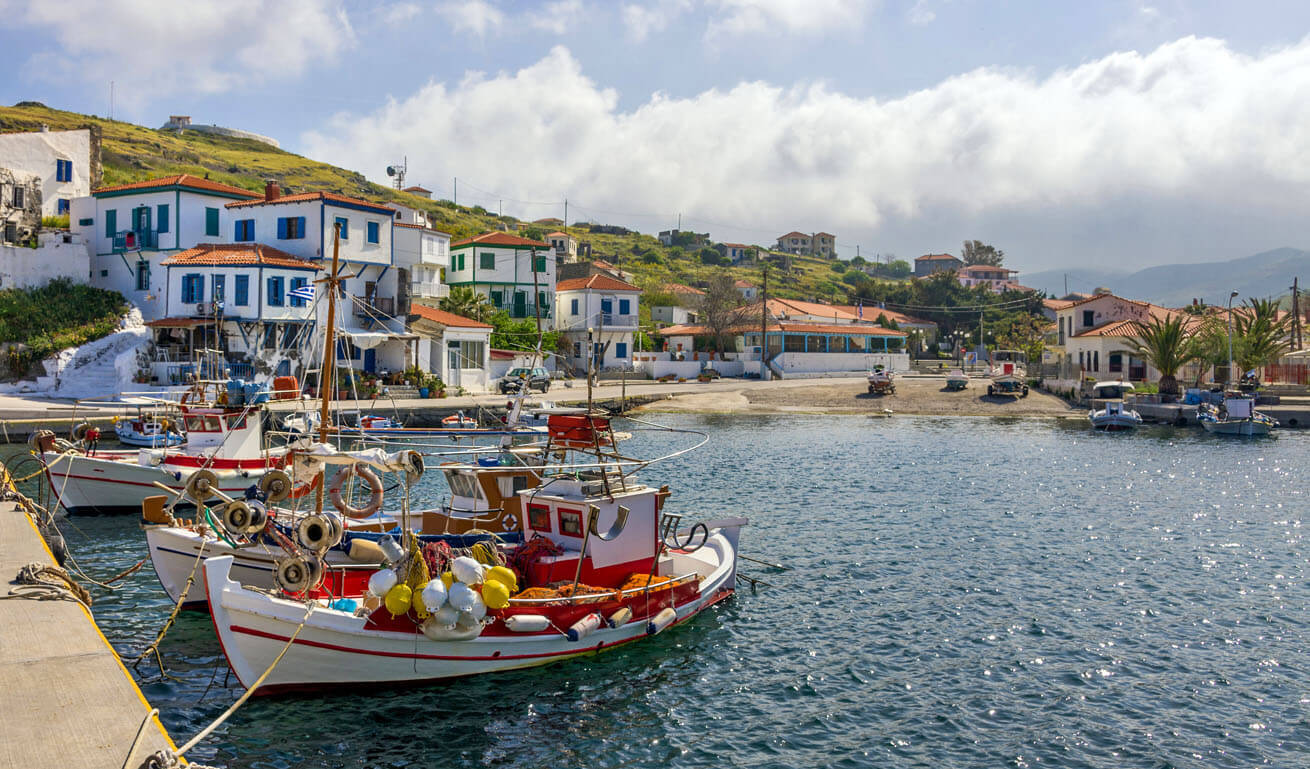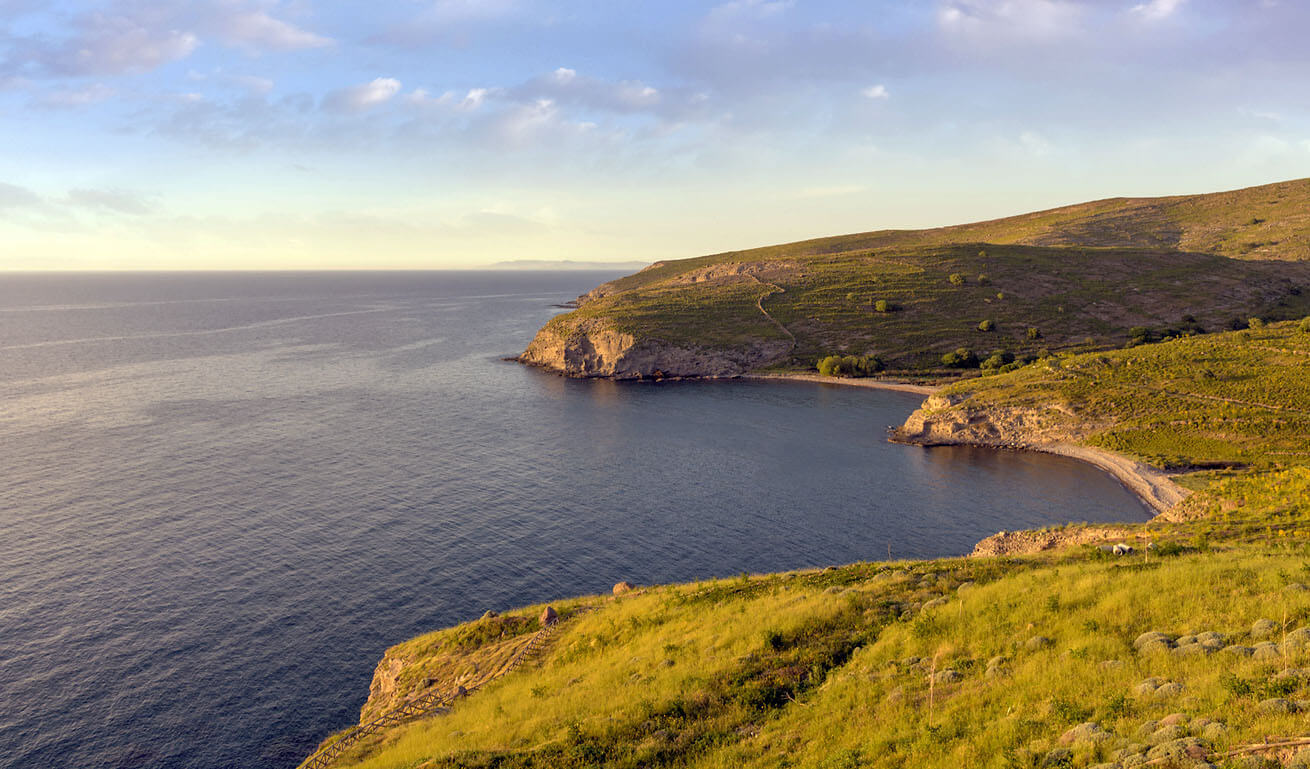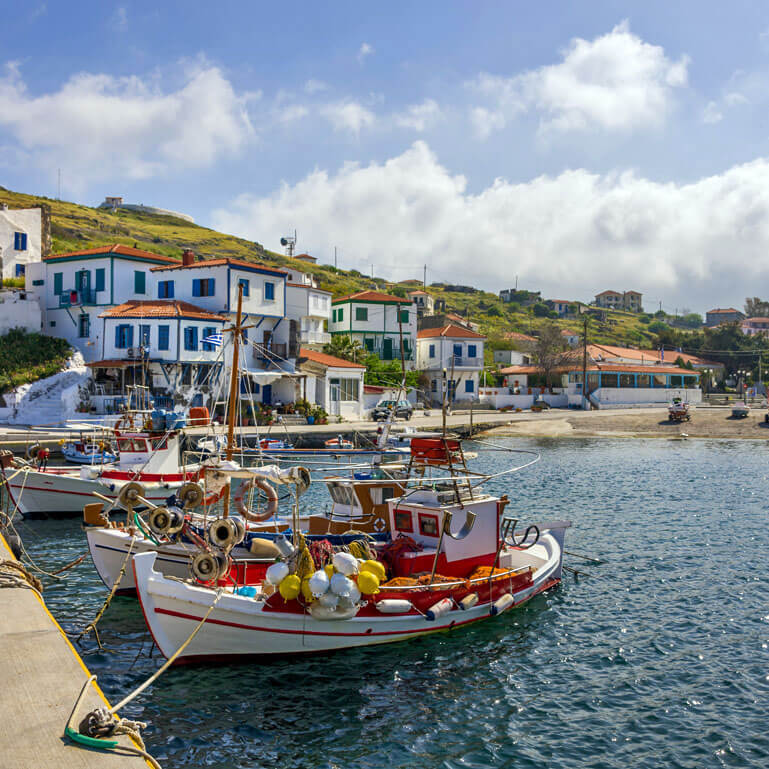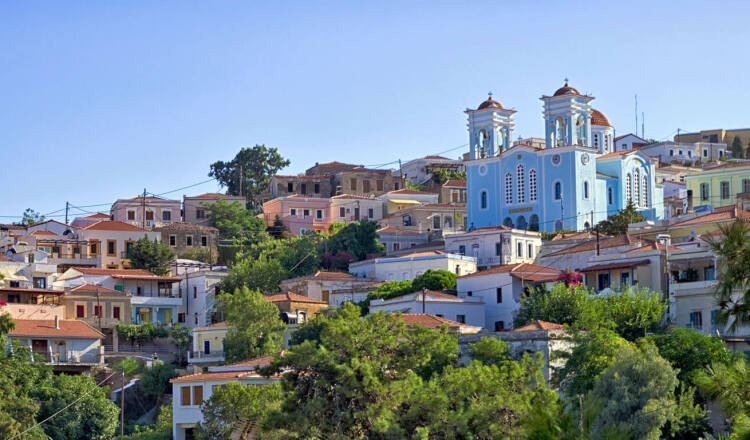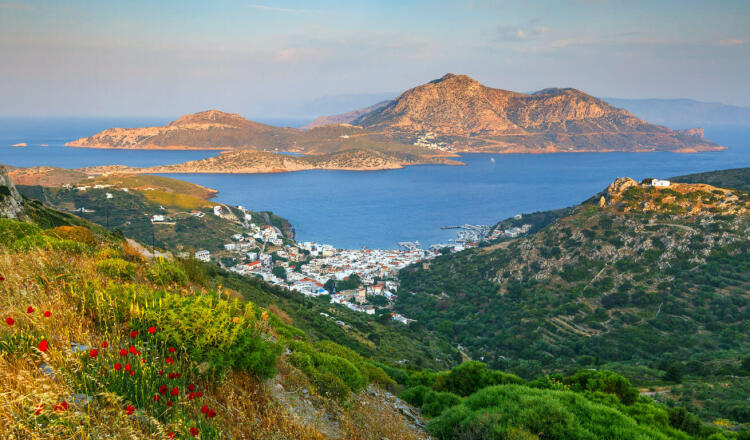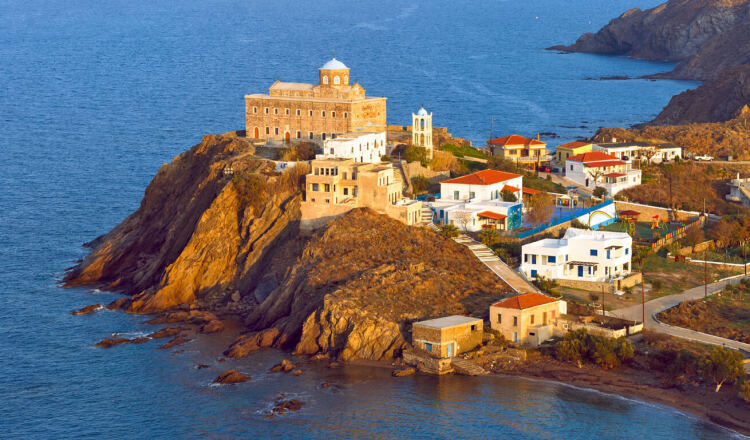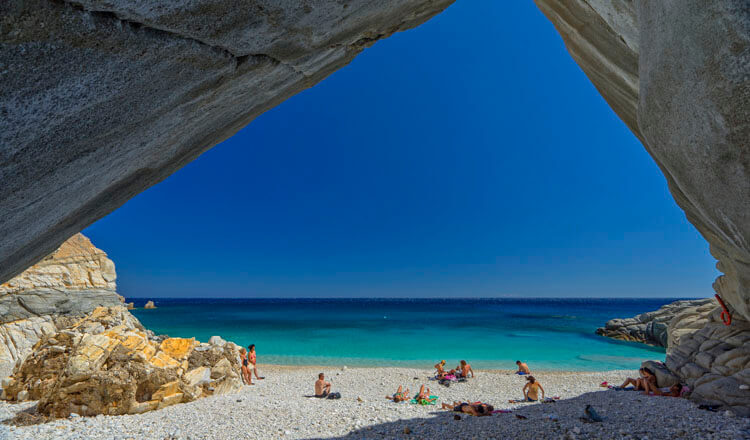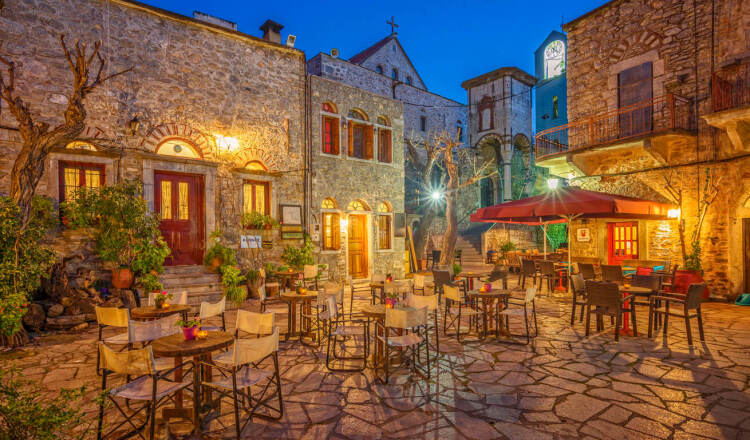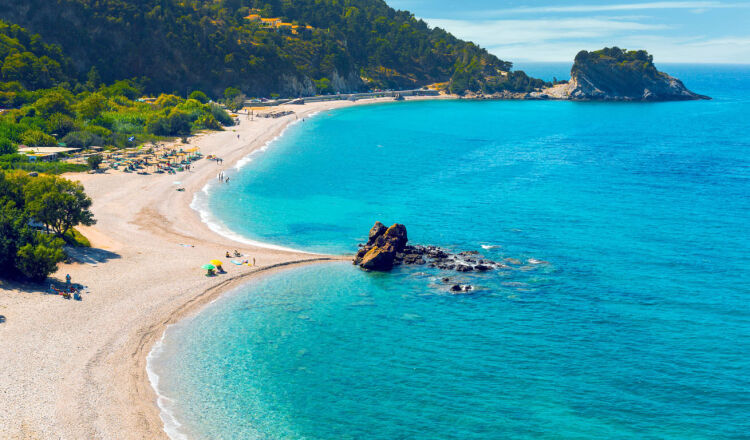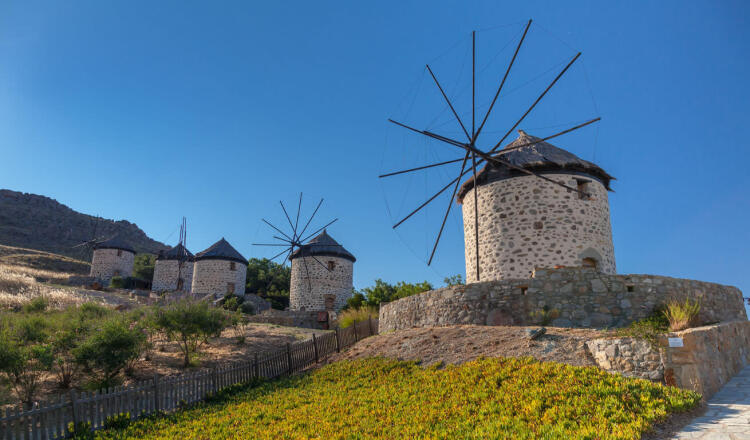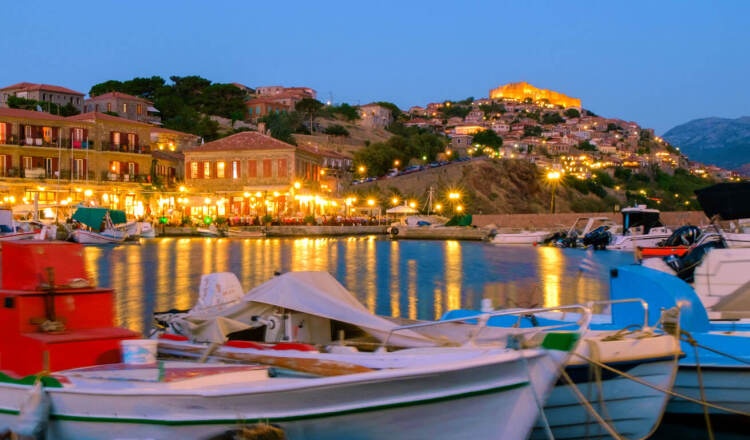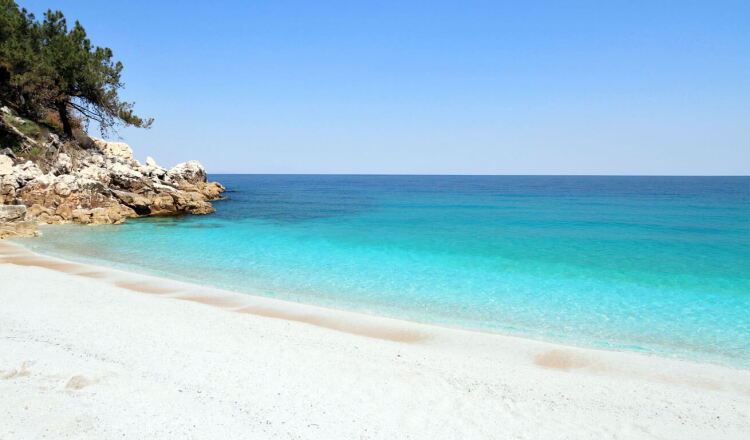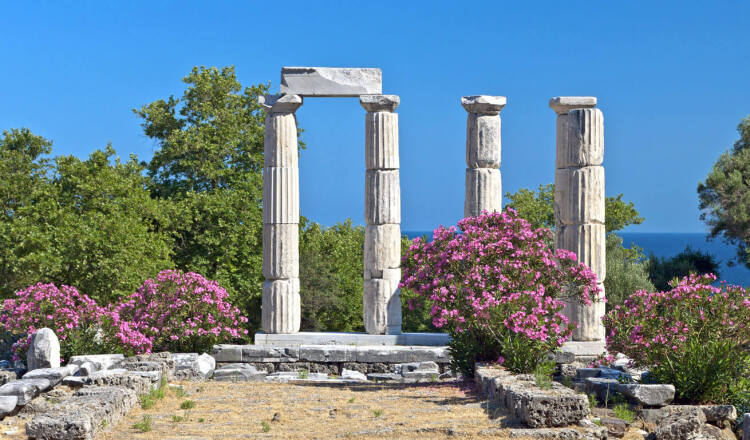Ai Stratis, with its 250 permanent residents, has intrigued many researchers, as it moves along at its own pace, cut off from the rest of the world by coincidence or temperament. A French director, Jean-Marie Tomasi, recorded the daily lives and stories of these islanders a few years ago, because – as she herself said – they remind her of her own island, Corsica, with its rebellious, independent spirit.
For us Greeks, however, Ai Stratis is hardly a strange place. All it takes is a few days for one to discover the thirst for communication, the kindness and the courtesy of the locals. Unreserved and with no shyness, ulterior motives or personal gain in mind, they will open their hearts to you just as easily as they will show you the map of their island. They will speak to you of the volcanic grey beach with its warm waters just a short distance from their homes. From the beautiful harbour, next to the caiques and fishing boats, you can set off in their own vessels on a tour of the island and beaches not accessible by land, such as Agios Dimitrios Trygari, Trypiti, Ftelio, Gournias, Lydario.
They will take you to Alonitsi, the retreat-beach with its islets a stone’s throw away. “We used to get to the other side in one long dive”, the more daring ones among them might tell you...
A retreat and a refuge, equally for people tired by daily life in the urban beehive and for our rare fauna, it is here, in the sea caves of Ai Stratis, that the Mediterranean seal, Monachus monachus, finds an ideal haven. The steep cliffs are home to predatory birds and seabirds. The sea meadows of the Mediterranean seas (the locals call them phykiades) sprawl out on the sea bed and offer a valuable habitat for a vast number of sea creatures as well as a wall of protection against erosion to the island.
Just when you think you have found yourselves on the island in the stories of the exiled, you are in for one last surprise: in the southeast part of Ai Stratis, vegetation is dominated by a one of a kind of oak forest that gives you priceless opportunities for walks and reveries. Besides, on such a small island, a road network of 50 kilometres of dirt roads reveals the intention of locals to utilize every inch of their land.
You must definitely see the ruins of the ancient city on the hill of Agios Minas, the churches of Christos, Agios Nikolaos and Agios Vasileios (built in 1727) and give in to the pleasure of a fresh lobster on your table. Actually, the lobsters of Ai Stratis are not just tasty, but also extremely light on your wallet: they do not cost their weight in gold, which is the case in the rest of the cosmopolitan Aegean.
